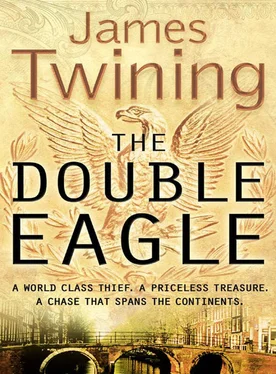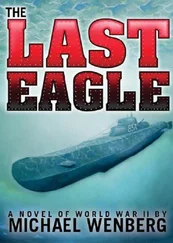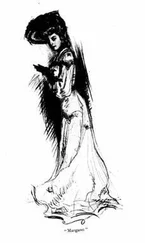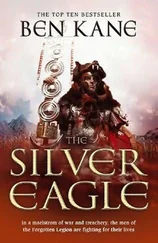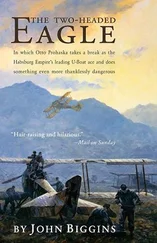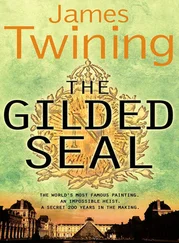He paused. There seemed to be something strange about the bearded man’s voice. A slight tension. He looked up and checked over his shoulder but his escape route was clear. He blinked his concern away and gave them the standard response.
‘Show me the money and I’ll take you to it.’
There. He saw it this time. Most wouldn’t have noticed but he had been around long enough to read the signs. The stiffening of the shoulders, the narrowing of the eyes as the lone antelope strayed just that little too far from the rest of the herd.
They were preparing themselves.
He looked around again. It was still clear, although it was difficult to see beyond the trees as night closed in. Then he realized. That’s why they’d been late.
So it would be dark.
Without saying a word he spun on the gravel, running, running as fast as he could, his slick leather soles spraying stones behind him like tyres accelerating on a dirt track. He couldn’t let them get it. He couldn’t let them find it. He snatched a glance over his shoulder and saw the two men bearing down on him, a gun barrel glimmering in the orange glow of the lights that lined the bridge overhead like a sharp claw.
Instinctively, he snapped his head back round just as he ran onto the point of the knife. Now he understood. The dark shape that had appeared in front of him, arm outstretched, face masked by the night, had been hiding in the shadows until he had come within striking distance. He’d been herded into the arms of death like an animal.
With a short, sharp punch, the six-inch serrated blade carved up into his chest and the shock of the impact made him swallow hard. He felt its coldness slicing through the soft cartilage at the base of his sternum, cutting into his heart.
It was the last thing he felt.
In the orange light, the blood that had leaked over the starched whiteness of his dog collar glowed green as Lady Liberty’s weathered skin. But unknowing, unseeing, unfeeling, her steady gaze was fixed instead towards America.
Towards New York.
Gold conjures up a mist about a man, more destructive of all his old senses and lulling to his feelings than the fumes of charcoal
Charles Dickens – Nicholas Nickleby
Fifth Avenue, New York City16th July – 11:30pm
Gracefully he fell, his body arcing in one smooth movement out from the side of the building and then back in, like a spider caught in a sudden gust of wind as it dropped on its thread, until with a final fizz of the rope through his gloved hand he landed on the balcony of the 17th floor.
Crouching, he unclipped the rope from his harness and flattened his back to the wall, his dark, lithe shape blending into the stained stone. He didn’t move, his chest barely rising, the thin material of his black ski mask slick against his lips.
He had to be sure. He had to be certain that no one had seen him on the way down. So he waited, listening to the shallow breaths of the city slumbering fitfully below him, watching the Met’s familiar bulk retreat into shadow as its floodlights were extinguished.
And all the while Central Park’s dark lung, studded with the occasional lights of taxis making their way between East and West 86th Street, breathed a chilled, oxygenated air up the side of the building that made him shiver despite the heat. Air heavy with New York’s distinctive scent, an intoxicating cocktail of fear, sweat and greed that bubbled up from subway tunnels and steam vents.
And although a lone NYPD chopper, spotlight primed, circled ever closer and the muffled scream of sirens echoed up from distant streets through the warm air, he could tell they were not for him. They never were. Tom Kirk had never been caught.
Keeping below the level of the carved stone balustrade, he padded over to the large semicircular window that opened onto the balcony, its armoured panes glinting like sheet steel. Inside, he could see that the room was dark and empty, as he knew it would be. As it was every weekend during the Summer.
A few taps on each of the hinges that ran down the side of the right-hand window and the bolts popped out into his hand. Then carefully, so as not to break the alarmed central magnetic contact, he levered the edge of the window away from the frame until there was a gap big enough for him to slip through.
Once inside, Tom swung his pack down off his shoulder. From the main compartment he took out what looked like a metal detector – a thin black plate attached to an aluminium rod. He flicked a switch on the top of the plate and a small green light on its smooth surface glowed into life. Keeping completely still, he gripped the rod in his right hand and began to sweep the plate over the arid emptiness of the floor in front of him. Almost immediately the light on the back of the plate flashed red and he paused.
Pressure pads. As predicted.
Moving the plate slowly over the spot where the light had changed colour, he quickly identified an area that he circled with white chalk. Repeating this procedure, he worked his way methodically across the room, moving in controlled, precise movements. Five minutes later and he had reached the far wall, a trail of small white circles in his wake.
The room was exactly as the photos had shown it and had the distinctive smell of new money and old furniture. A large Victorian partners’ desk dominated, a masculine marriage of polished English oak and Italian leather that reminded him of the interior of a 1920s Rolls Royce. Behind the desk, the wall was lined with what looked like the remnants of a once substantial private library, now presumably scattered across the world according to auction lots.
The two sidewalls that ran up to the window were painted a sandy grey and symmetrically hung with a series of drawings and paintings, four down each wall. He did not have to look closely to recognise them – Picasso, Kandinsky, Mondrian, Klimt. But Tom was not there for the paintings, nor for the decoy safe he knew lay behind the third picture on the left. He had learned not to be greedy.
Instead, he picked his way back through the chalk circles to the edge of the silk rug that filled the floor between the desk and the window, its colours shimmering in the pale moonlight. With his back to the window, he gripped one corner of the rug and threw it back. Underneath, the wood was slightly darker where it had been shielded from the bleaching sun.
Kneeling, he placed his gloved hands flat on the floor and slid them slowly across the dry wooden surface. About three feet in front of him, the tips of his fingers sensed a slight ridge in the wood. He moved his hands apart along the ridge, until he reached what felt like a corner on both sides. Placing his knuckles on these corners, he leant forward with all his weight. With a faint click, a two-foot square panel sank down and then sprang up about half an inch proud of the rest of the floor. It was hinged at the far end and he folded the panel back on itself so that it lay flat, revealing a gleaming floor safe.
The safe manufacturing and insurance industries cooperate on the security ratings of safes. Manufacturers regularly submit their products to independent testing by the Underwriters Laboratory, or UL, who in return issue the safe with a Residential Security Container Label that allows the insurers to accurately determine the relevant insurance premium.
The safe that Tom had revealed had, according to its freshly affixed label, been rated TXTL – 60. In other words, it had been found to successfully resist entry for a net assault time of 60 minutes. It was one of the highest ratings that UL could give.
Even so, it took Tom just eight and a half seconds to open it.
Inside there was some cash, around fifty thousand dollars he guessed, jewellery and a 1920s Reverso wristwatch. But he ignored all these, turning his attention instead to a large wooden box, its dark mahogany lid inlaid with a golden double-headed eagle, an orb and sceptre firmly gripped in each of its talons. The Romanov Imperial crest.
Читать дальше
